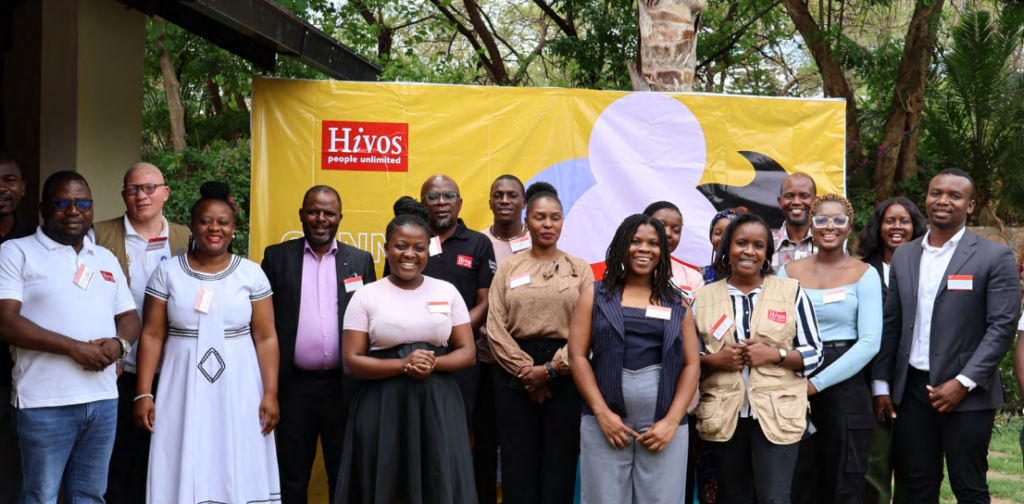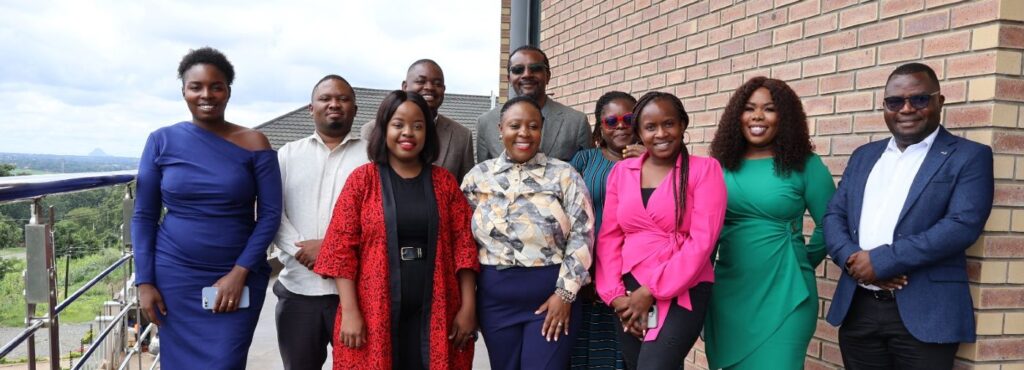From staunch opponent to an immovable pillar of support
Under the increasing public support pillar of the Free to Be Program, some partners in Kenya, with support of our Technical partners Sogicampaigns and the Global Interfaith Network, have worked to facilitate increased acceptance of LGBTIQ+Kenyans within their families in critical services, including law enforcement. Evangelist Munuango’s story is an illustration of this. For the first time ever, a banner of an LGBTIQ+ organization was proudly hoisted in a police station.
Evangelist Munuango’s journey began with misconceptions and resistance, as he candidly shares, “I was against the concept of LGBTIQ+ without having much knowledge and would cling to the passage about Lot in the Bible to justify my ignorance.”
When he sat in the sessions involving parents, service providers, and religious leaders across he finally had the opportunity to engage in deep conversations about wellness, faith, and the challenges faced by LGBTIQ+ individuals, and his deeply long-held beliefs shifted.
It was through these sessions that I realized my interactions and perspectives were wrong. After learning and engaging with others, I am now a different person, a better communicator.
One of the key outcomes of these sessions has been the profound change in mindset among church leaders and faith communities. Muniango notes that after the sessions, many participants spoke about how their understanding of LGBTIQ+ issues had been broadened, particularly when it came to issues affecting LGBTIQ+ persons. The feedback from these sessions was overwhelmingly positive, with many participants expressing how their views had evolved.
The ripple effect of these dialogue sessions has reached even unexpected places, such as the local police station in Bondo, where interest in understanding LGBTIQ+ issues has grown.

“The police in Bondo have been asking for more sessions, especially on matters concerning LGBTIQ+ persons,” Munuango says, highlighting how the dialogue has begun to extend beyond the church and into the broader community.
Munuango’s role as a faith leader has been particularly influential within the Anglican Church in Bondo, where one of the local reverends sought his assistance in sensitizing other church leaders on the topic of LGBTIQ+ inclusion. As a result of the work, there has been a noticeable shift in attitudes in the local area, particularly in Nyamonye, where religious leaders and community members are now more open to continued sensitization on GSM issues.
“I have seen perspectives change,” Munuang’o reflects. “The program has been instrumental in creating awareness and changing the mindsets of people from different walks of life.”
Munguango’s ongoing work stands as a testament to how education, dialogue, and compassion can bring about meaningful change, even in areas where resistance once ran deep.




